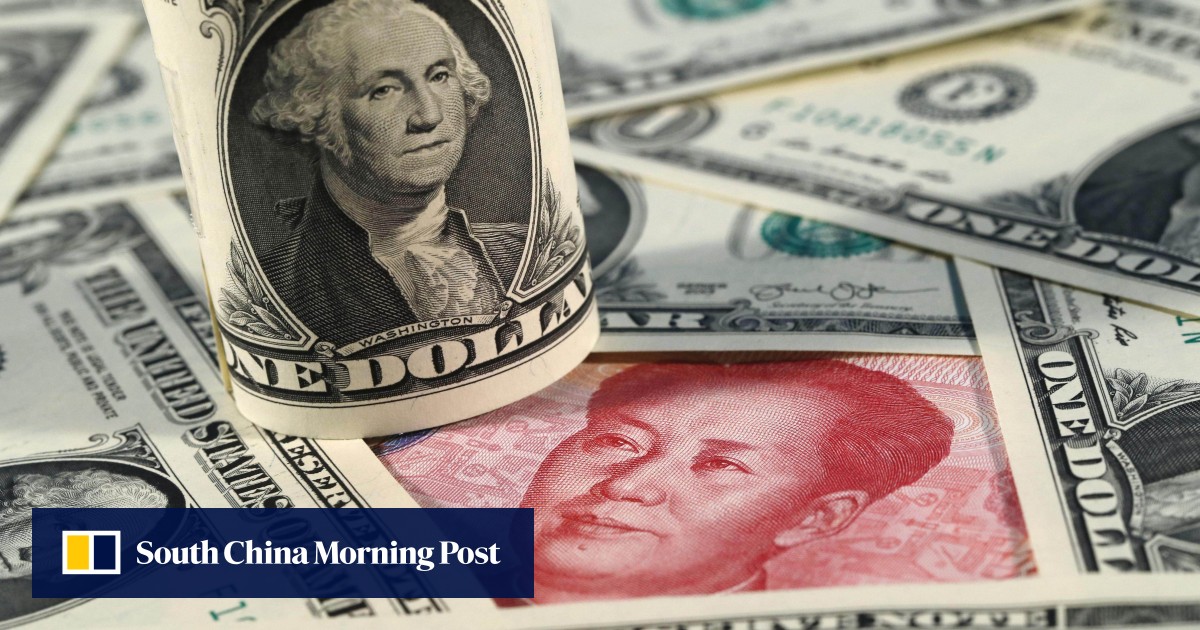
China must cut US treasuries in ‘orderly’ fashion, maintain balance of trade amid rising risks: ex-central bank adviser
- China is the second-largest foreign holder of US government bonds and maintains a large trade surplus with the rest of the world
- But former People’s Bank of China adviser Yu Yongding says China should be aware of the US debt crisis and Washington’s ‘weaponising’ of the US dollar in trade
China should make an “orderly” cut of its US Treasury holdings and maintain a “balance” of trade with the rest of the world, according to a prominent Chinese economist.
It is the second-largest foreign holder of US government bonds after Japan, according to data from the US Department of the Treasury, while China also maintains a large trade surplus with the rest of the world as it consistently exports more than it imports.
“China should step up the adjustment of its overseas assets and liabilities, increasing the income of overseas net assets. To this end, China should reduce the proportion of overseas assets in its foreign exchange reserves,” Yu said, according to a transcript published by the Beijing-based New Economist think tank on Sunday.
Yu said that China needs to improve the security of its overseas assets, especially its foreign exchange reserves, which stood at US$3.17 trillion in November, according to data from the State Administration of Foreign Exchange.
Under the current conditions, China should “try to reduce the stock of foreign exchange reserves” to a level that is recognised “internationally”, he said, without elaborating the specific foreign exchange reserve standards.
China held US$778.1 billion of US Treasury bills in September, based on US Treasury data, although the data excludes bonds held by non-US custodians, such as those in Europe.
Following Russia’s invasion of Ukraine, the US and its allies blocked the Russian central bank’s access to its holdings of foreign exchange reserves, with such moves undermining the US’ credibility, according to Yu.
“This kind of thing needs to be done in an orderly manner,” Yu said, adding that it would be “unwise” to engage in large sell-offs of US government bonds given its geopolitical implications.
China, which has the world’s largest foreign exchange reserves due to its large export revenues, does not disclose the location of its deposits.
Brad Setser, a former US Treasury economist and senior fellow at the Council on Foreign Relations, estimated in a blog post in October that US bonds have consistently made up around 50 per cent of China’s reported reserves.
In August, Fitch Ratings knocked its US credit rating down to AA+ from AAA, while Moody’s Investors Service lowered its outlook on US government debt in October to “negative” from “stable” due to large fiscal deficits and a decline in debt affordability.
Yu also said it is important for China to maintain a “trade balance and international balance of payments” by increasing imports from the US and the rest of the world, while also growing its domestic consumption.
“In a certain period of time, we can have a trade deficit. On the other hand, China’s economic growth cannot rely too much on external demand,” Yu said.
“To do this, we must keep the Chinese economy at a relatively high economic growth rate.
“We are required to adopt an expansionary monetary policy, which is conducive to maintaining our foreign reserves and the security of overseas assets.”


